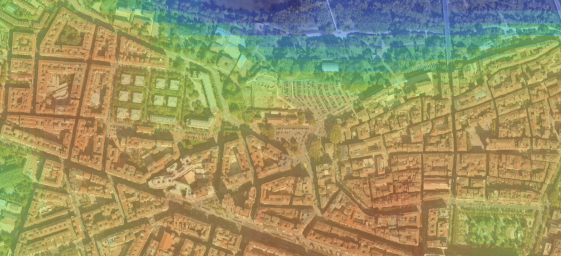Agenda
Day 1 – April 23
|
8.30 – 9:00 |
Registration |
|
I. Opening of the Expert Meeting |
|
|
9:00 – 9:15 |
Introduction of Meeting Participants (tour de table) Opening Remarks
|
|
II. Overview: Assessing the Impact of Urban Policies, Growth, and Integrated Planning Strategies for GHG Emission Reductions |
|
|
9:15 – 10:45 |
Purpose and Background: GPSC’s Promotion of Sustainable Urban Planning Strategies
Overview of the Existing Tools
Discussion |
|
10:45 – 11:15 |
Coffee Break |
|
III. Tools for Assessing Integrated Urban Planning’s Effect on GHGs Relevant tools and case studies will be presented. Participants are invited to comment on the pros and cons, and the suitability of the sustainability tools for GPSC purposes. |
|
|
11:15 – 12:30 |
Measuring the Effect of Integrated Urban Strategies on GHG Emissions Moderator: Mr. Shagun Mehrotra, Senior Urban Specialist, World Bank 1. CityDNA: Measuring Urban Form/ Street Space and the Effect on Emissions in China
Discussion |
|
12:30 – 13:30 |
Lunch |
|
13:30 – 15:30 |
Urban Growth Scenario Modeling for GHGs Moderator: Mr. Marlon Boarnet, Department of Urban Planning and Spatial Analysis, Sol Price School of Public Policy, University of Southern California Discussant: Ms. Yuan Xiao, Urban Development Specialist, World Bank
2. Urban Growth Scenario Modeling for Cities in Jordan
3. Discussion |
|
15:30 – 15:45 |
Coffee Break |
|
15:45 – 17:30 |
Other Analytical and Modeling Tools for GHGs Moderator: Mr. Marlon Boarnet, Department of Urban Planning and Spatial Analysis, Sol Price School of Public Policy, University of Southern California 1. City Performance Tool (CyPT): Case Studies
2. Climate Action for Urban Sustainability (CURB)
3. Mapping Analytical and Modeling Tools for Nationally Determined Contributions (NDC) Implementation
4. Discussion |
|
17:30 |
Wrap Up of Day 1 |
Day 2 – April 24
|
IV. Accounting and Reporting City GHG Inventories In this session, experts will share the information on approaches and standards used for accounting, reporting, and tracking GHG inventories at the city level and for development projects, with a focus on elaborating how they work and the benefits that cities can derive through this process to achieve their GHG emissions reduction targets. |
|
|
9:00 – 11:00 |
Assessing the Impact of Technology, Data, and Policy Packages on GHGs Moderator: Ms. Anu Ramaswami, Professor and Charles M. Denny, Jr., Chair of Science, Technology, and Environmental Policy at the Humphrey School of Public Affairs, University of Minnesota; Director, Sustainable Healthy Cities Network 1. Carbonn Climate Registry and ClearPath Integration for GHG Inventories Reporting and Development/ City Climate Planner
2. Guiding Principles for City Climate Action Planning
3. Climate Technology Center and Network (CTCN): Building Capacity for Cities to Lower GHG Emissions
4. Discussion |
|
11:00 – 11:15 |
Coffee Break |
|
11:15 – 12:30 |
Panel Discussion: GHG Accounting and Reporting for Cities and Development Projects Moderator: Mr. Nigel Jollands, Associate Director, Policy and Climate Finance, European Bank for Reconstruction and Development Discussant: Ms. Anu Ramaswami, Professor and Charles M. Denny, Jr., Chair of Science, Technology, and Environmental Policy at the Humphrey School of Public Affairs, University of Minnesota; Director, Sustainable Healthy Cities Network 1. GEF GHG Accounting Standard and Approach to Urban Development
2. World Bank GHG Accounting Guidance
3. Global Protocol for Community-Scale Greenhouse Gas Emission Inventories (GPC)
|
|
12:30 – 13:30 |
Lunch |
|
V. GPSC Technical Note Review and Consultation A draft GPSC technical note, “Tools for Measuring the Impact of Integrated Urban Sustainable Planning on GHG Emissions”, will be shared with participants prior to the session for review and discussion. Feedback and comments provided in this session will help the team to further enhance the contents and improve the uptake of this research. |
|
|
13:30 – 15:30 |
Discussion: Tools for Measuring the Impact of Integrated Urban Sustainable Planning on GHG Emissions Moderator: Ms. Xueman Wang, GPSC Program Coordinator and Senior Urban Specialist, World Bank Feedback on the Draft Technical Note |
|
15:30 – 15:45 |
Coffee Break |
|
15:45 – 16:15 |
|
|
16:15 |
End of the Expert Meeting |






